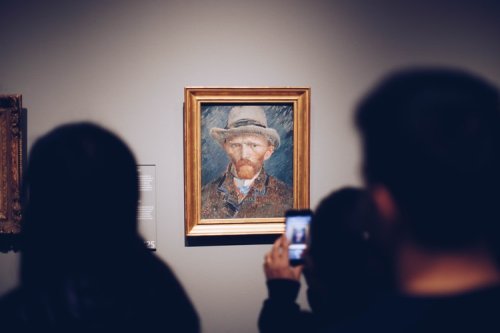
What Does a Museum Curator Do?
Museums allow the public to see historic artwork and artifacts that are hundreds or thousands of years old in person. It takes a considerable amount of time and effort to obtain these items, verify their authenticity, and keep them safe. Typically, the museum curator will oversee this process and other aspects of managing a museum's collection. Their role will vary somewhat depending on the museum's size, but here's an overview of a museum curator's responsibilities and how you can take the next step along this career path with the help of Tulane School of Professional Advancement.
Choosing New Displays
For any museum, attracting visitors is essential. A museum curator has to see to find items that will create buzz. However, their work doesn't stop once they build an impressive collection. They have to continue to bring in new artwork and other displays to keep things fresh and draw in repeat visitors. To develop their expertise, museum curators often have degrees in the humanities and social sciences or marketing while also participating in academic research and industry conferences.

Taking Care of Collections and Acquisitions
Many of the items in a museum are highly valuable or even priceless due to their age. A museum curator is responsible for ensuring that these artifacts are handled and displayed in a way that keeps them safe. They oversee the item's documentation, conduct research on the collection, and find the right packaging for items whenever they have to be transported.
Keeping Records and Planning Events
Most of a curator's responsibilities will depend on superb organization skills, a keen eye for design, and a deep appreciation for the fine arts—however, these professionals must also catalog all the museum's acquisitions, including items that the museum owns and ones that are on loan. Tulane SoPA also offers a Professional Certificate in Accounting Fundamentals for non-degree-seeking students who want to grow their knowledge in bookkeeping and inventory management. Inventory and record-keeping can be a painstaking process; The Metropolitan Museum of Art has over two million works in its collection and an entire staff dedicated to keeping track of its exhibitions. Acquiring skills in basic accounting practices can prepare aspiring museum curators for the transactional side of their role.
Along with visits from guests, museums drive a large portion of their income from private events, which can include fundraisers, concerts, and interactive exhibitions. By working with other staff members, a museum curator can propose ideas for events based on the current collection of items they plan to obtain.
If you're considering a career in the humanities, the Tulane School of Professional Advancement can help you build the practical skills and professional network needed to succeed. With flexible online courses and robust financial assistance, we built our programs to help working adults further their careers by going back to school. Learn more about our degree programs by requesting more information.
Explore Our Most Recent Graduate News & Blog Posts
Request Information
By submitting this form, you agree to receive information about the Tulane School of Professional Advancement’s programs via email, phone and/or text. You may opt out at any time.




